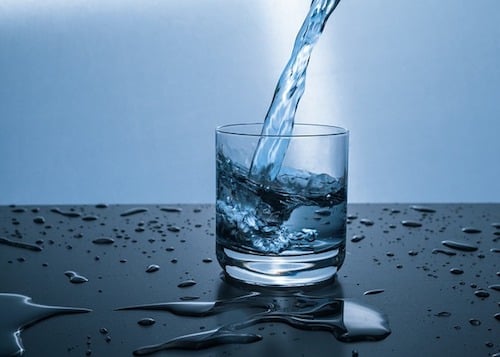Drinking too much water in a short period of time can cause water poisoning which can eventually lead to death.
Water, if consumed in excess, creates an imbalance in the body’s electrolytes such as sodium, potassium, etc., which are essential for normal bodily functions, including maintaining the balance of fluids in and around cells.
Drinking too much water in a short period of time lowers the level of electrolytes in the blood, especially sodium. It disrupts the balance of fluids in and around the cells, causing the cells to swell. In severe cases, it can be fatal. Here are some important points to further understand water poisoning:
Symptoms: Symptoms of water poisoning can vary in severity, but generally include nausea, vomiting, headache, confusion, muscle aches, seizures and, in severe cases, coma and ultimately death.
Risk Factors: Certain factors can further increase the risk of water poisoning, such as medical conditions that affect kidney function or medications that affect fluid balance. Also, those who are taking diuretics for excessive urination should also be careful about their water consumption.
Treatment: If someone suspects water poisoning, it is important to seek medical attention immediately. Treatment usually involves monitoring electrolyte levels and correcting any imbalances. In severe cases, hospitalization and intravenous electrolyte replacement may be necessary.
(function(d, s, id){
var js, fjs = d.getElementsByTagName(s)[0];
if (d.getElementById(id)) {return;}
js = d.createElement(s); js.id = id;
js.src = “//connect.facebook.net/en_US/sdk.js#xfbml=1&version=v2.3&appId=770767426360150”;
fjs.parentNode.insertBefore(js, fjs);
}(document, ‘script’, ‘facebook-jssdk’));
(function(d, s, id) {
var js, fjs = d.getElementsByTagName(s)[0];
if (d.getElementById(id)) return;
js = d.createElement(s); js.id = id;
js.src = “//connect.facebook.net/en_GB/sdk.js#xfbml=1&version=v2.7”;
fjs.parentNode.insertBefore(js, fjs);
}(document, ‘script’, ‘facebook-jssdk’));



